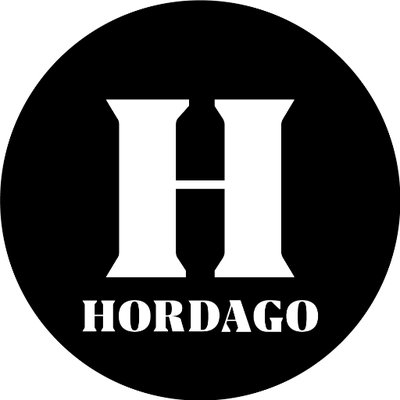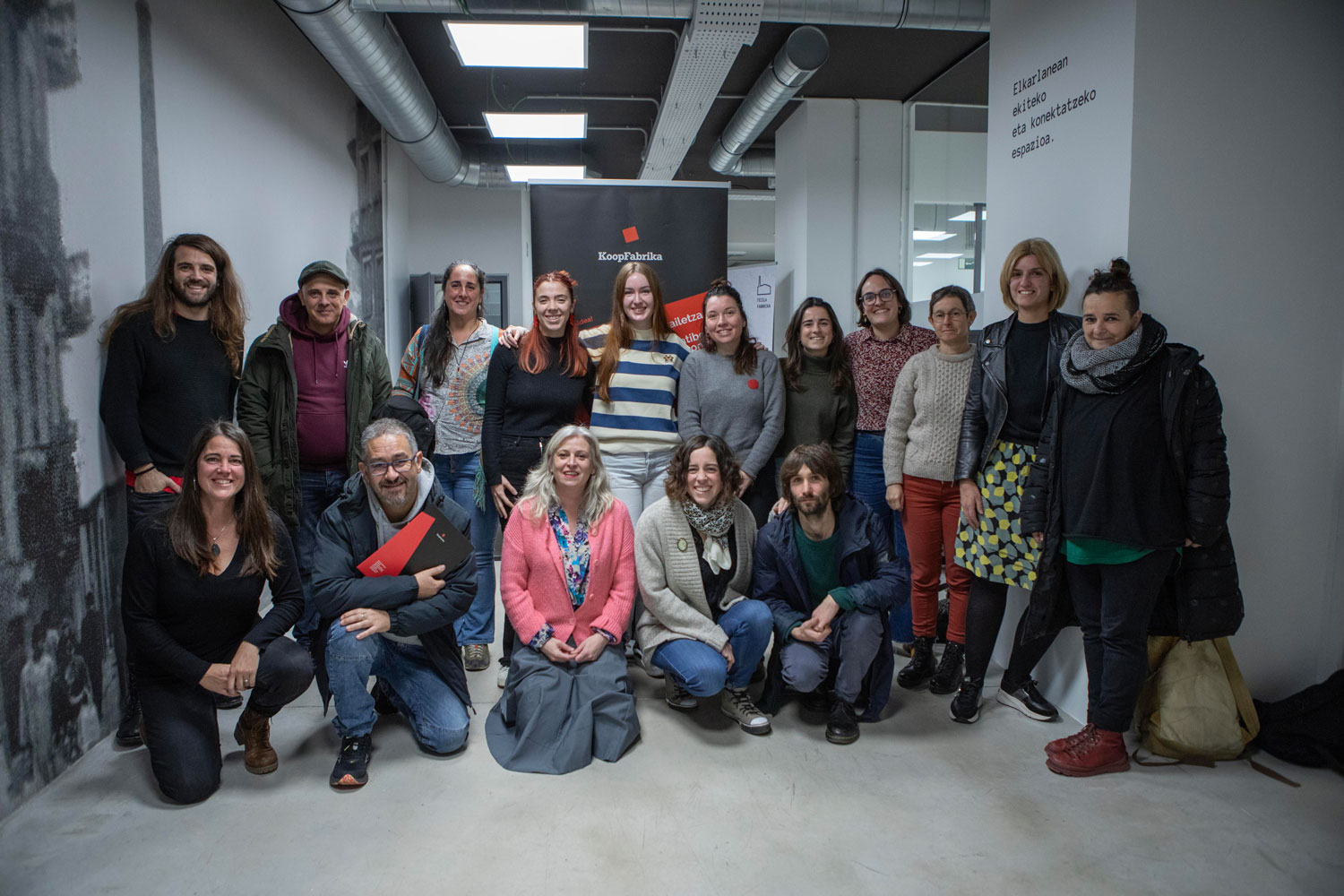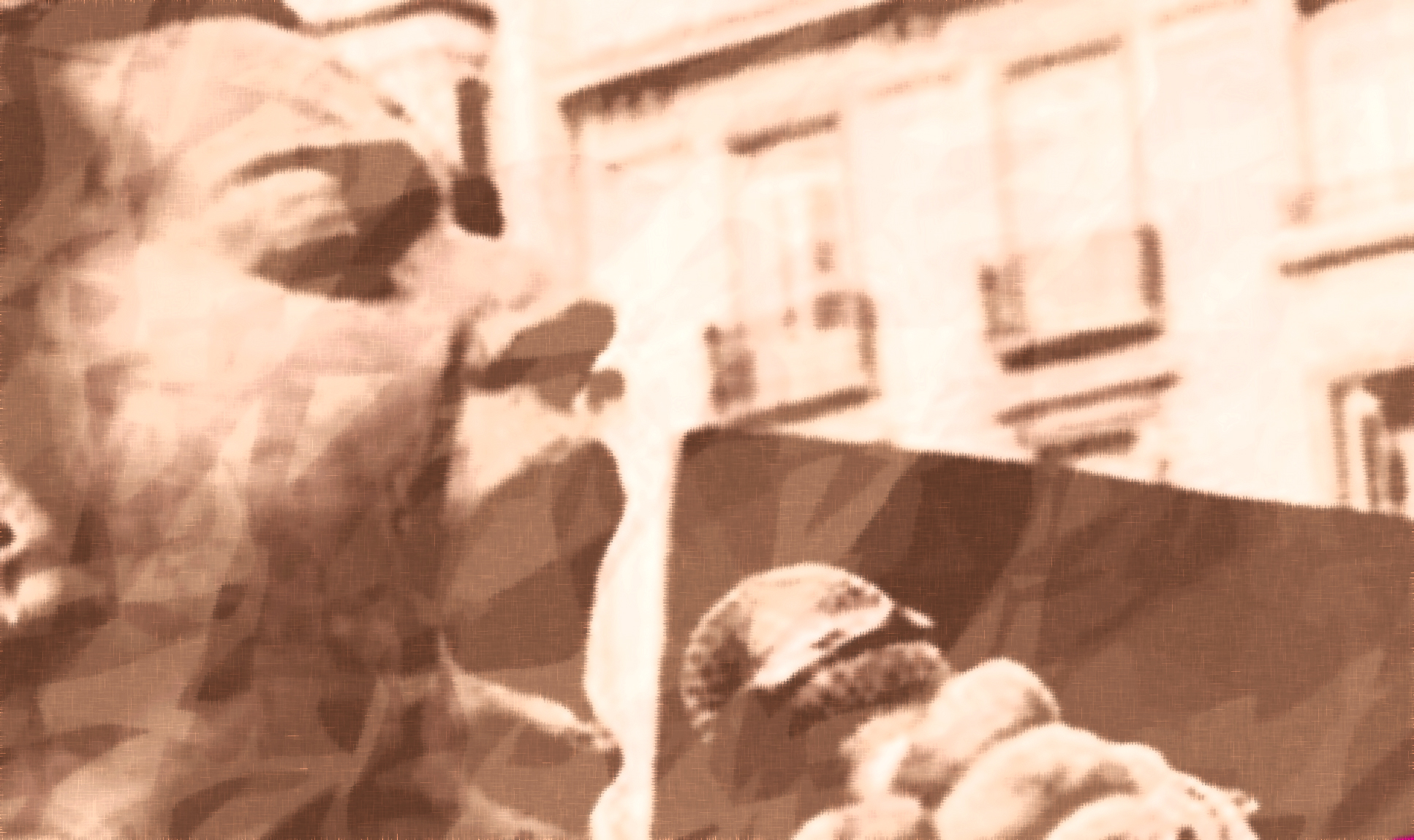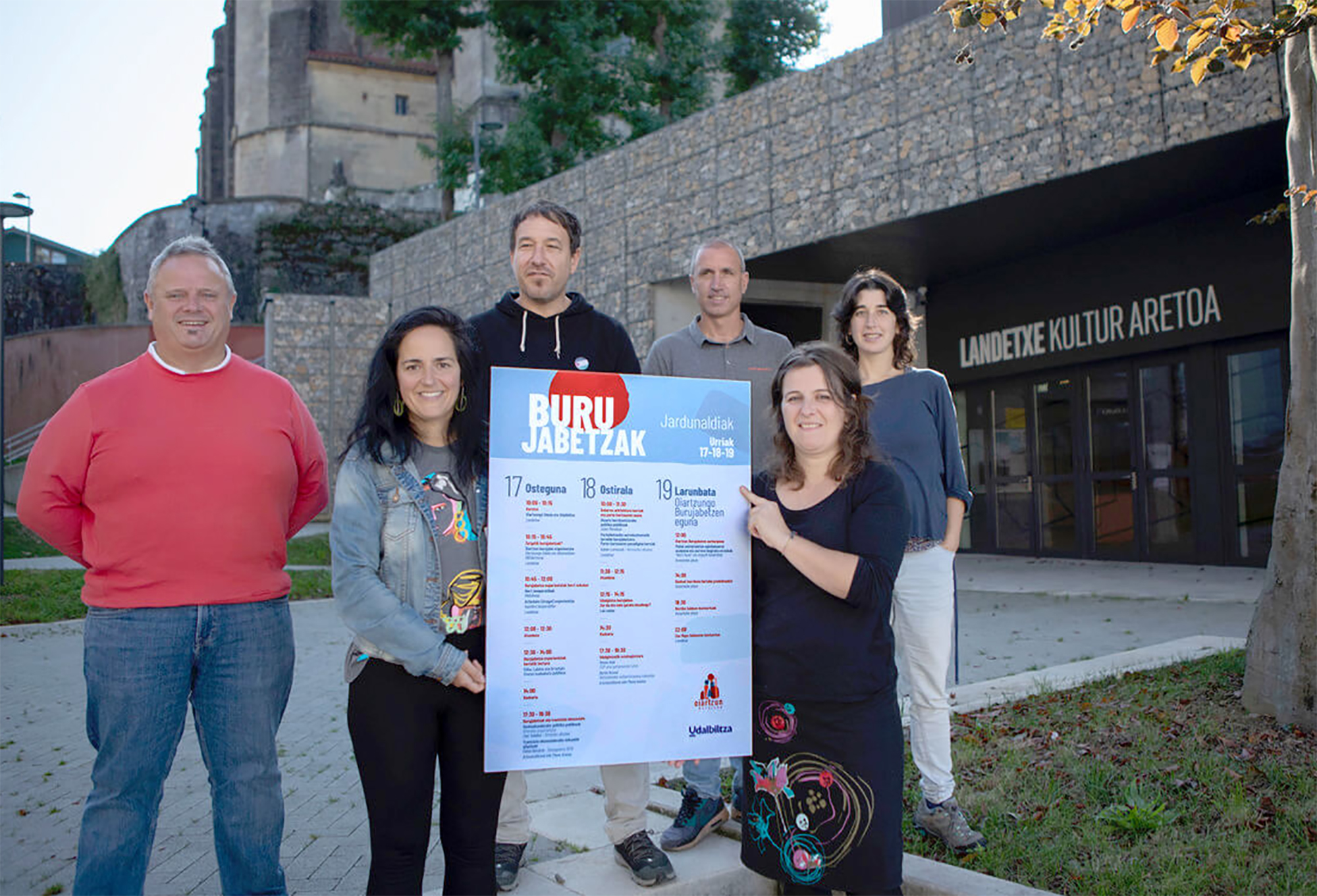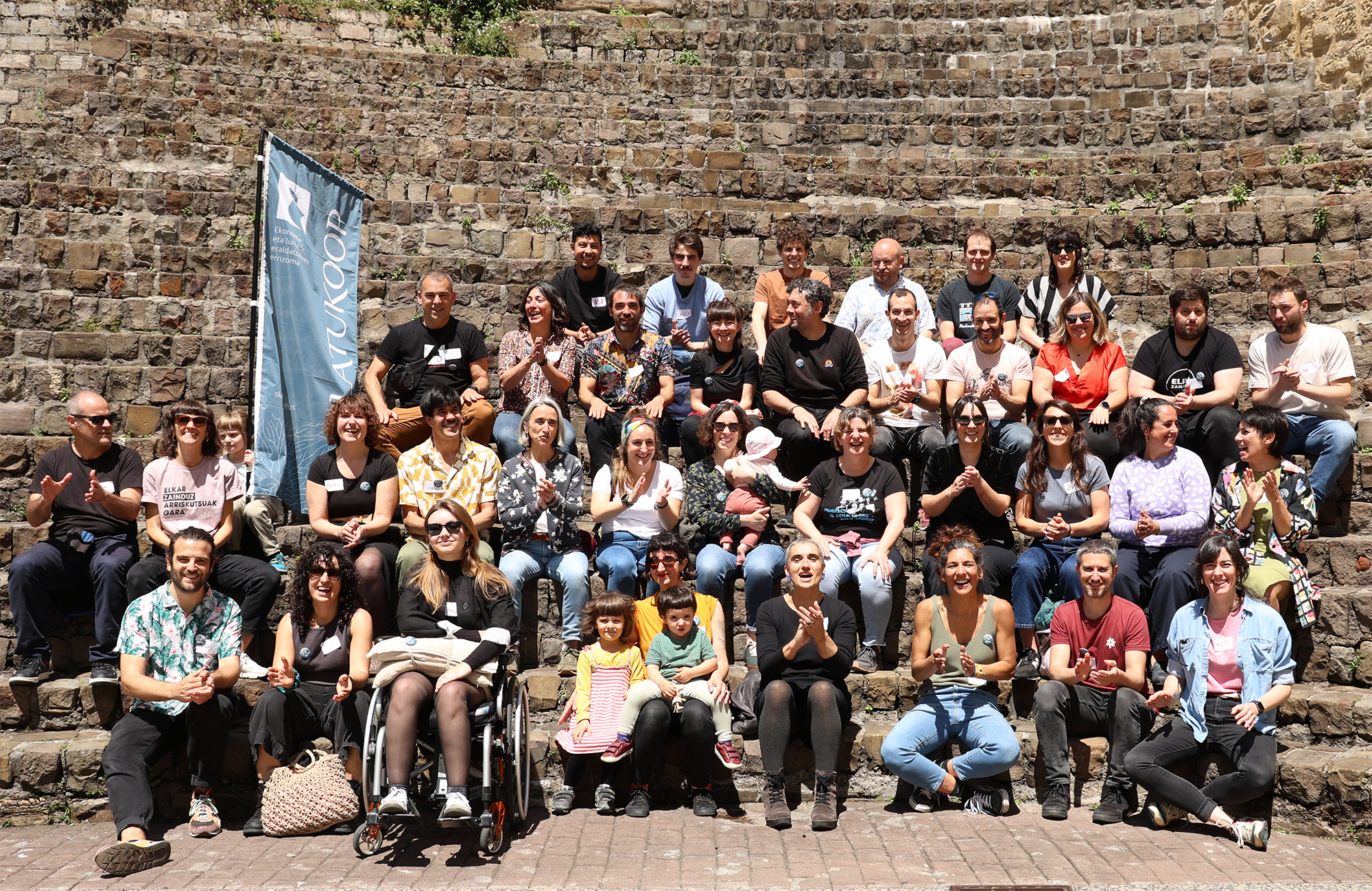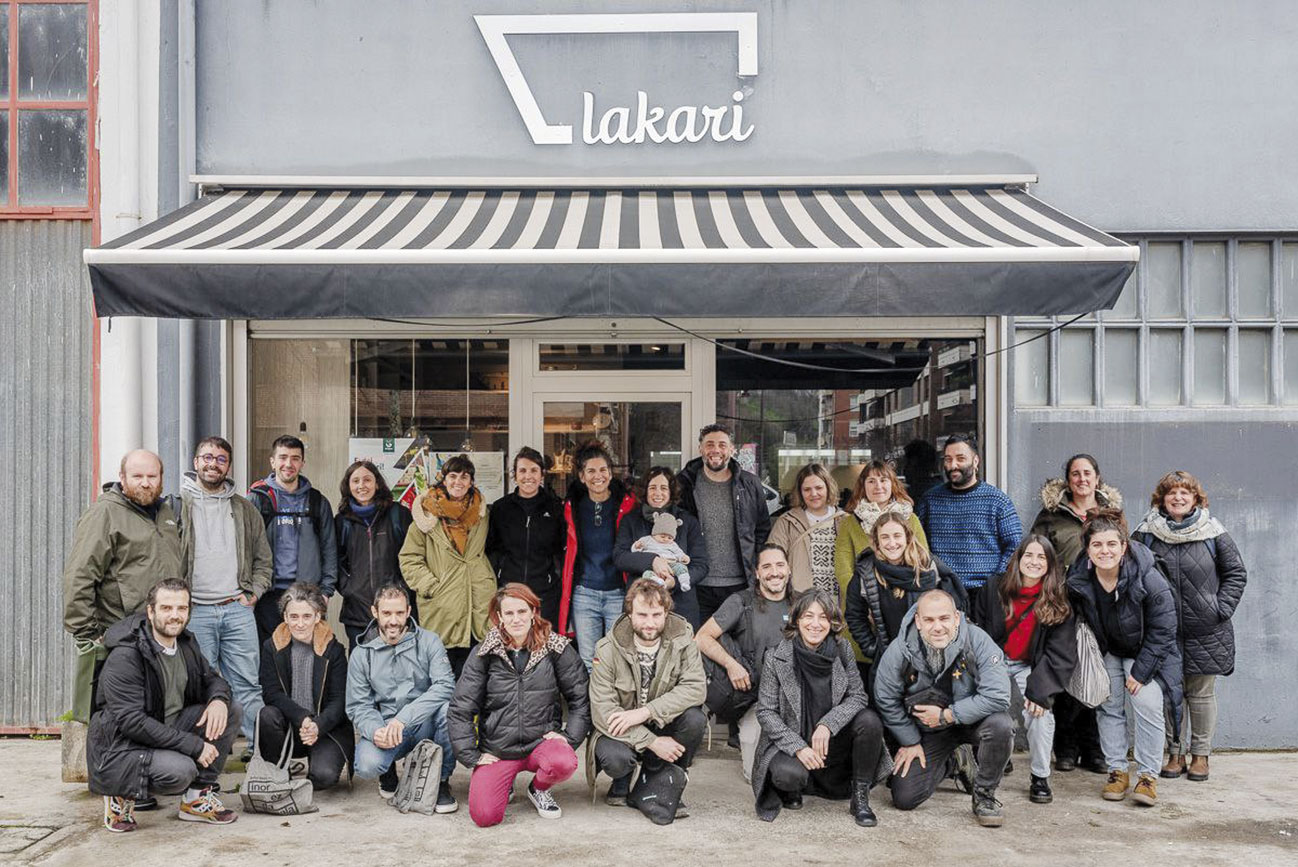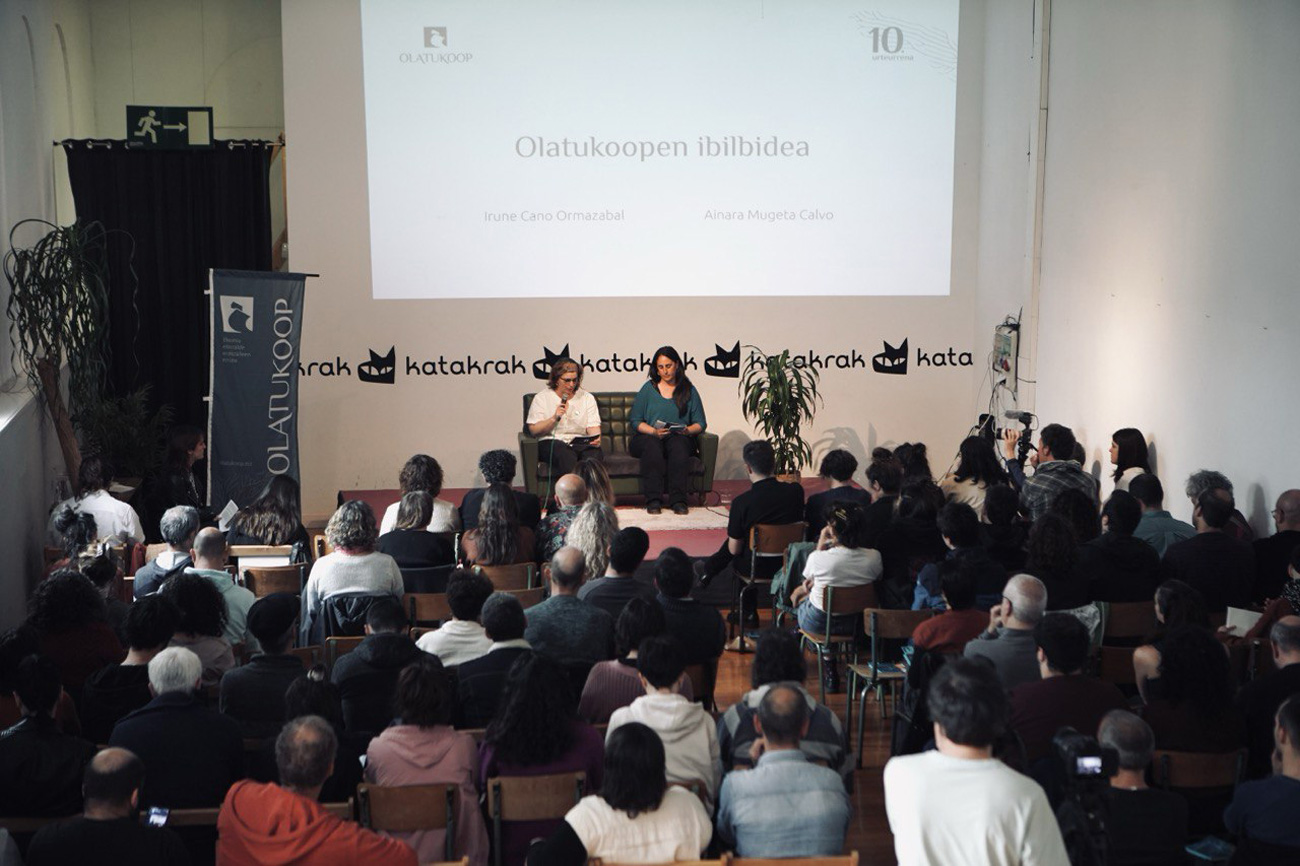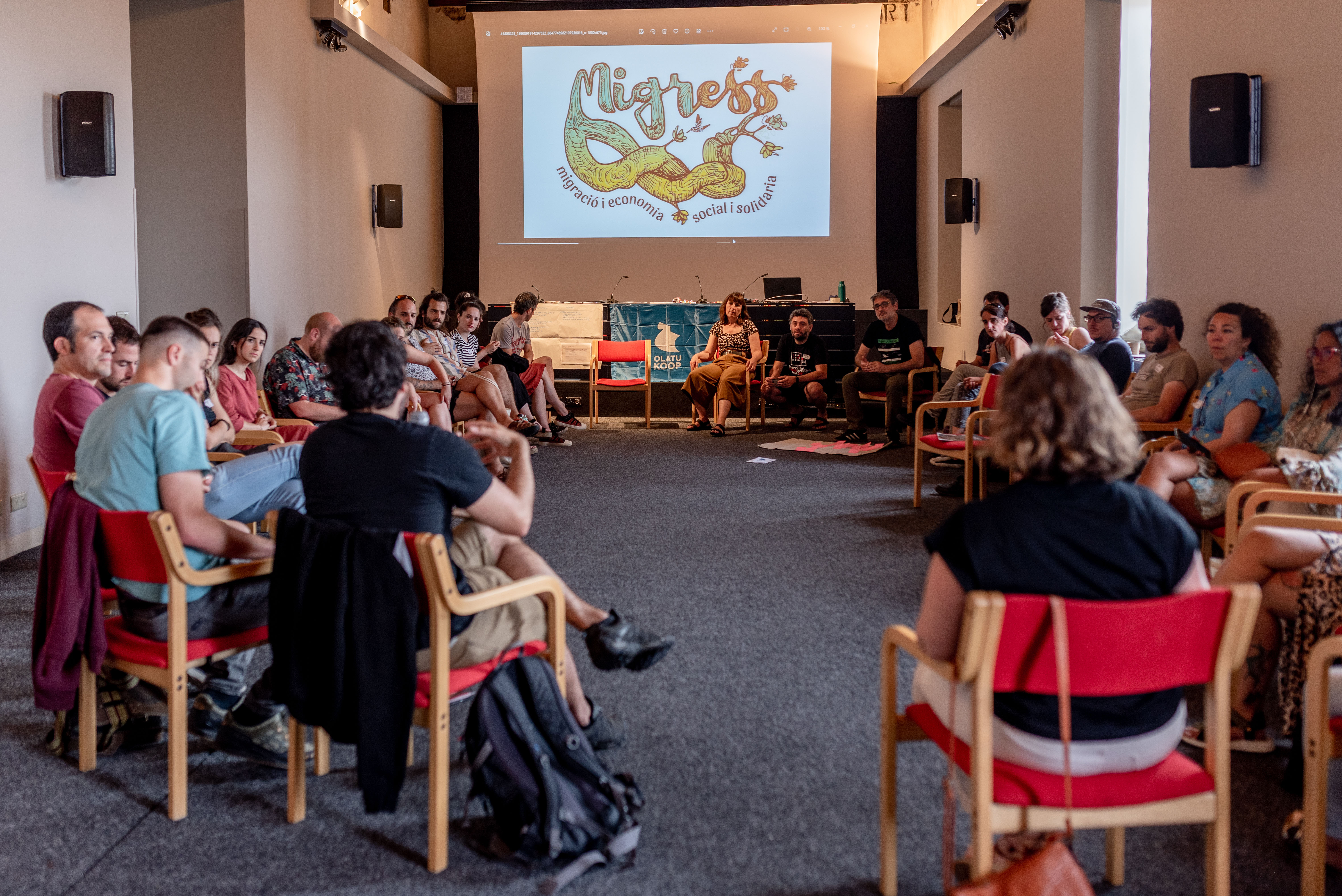Transforming Economy Network has more resilience in the fields of social equality, sustainability and economic democracy
- Do we want to return to an unjust and unsustainable system or do we resolutely opt for the transition to another model, for example, the one that offers us the solidarity economy and transformative social movements?

The current pandemic and the ensuing crisis have brought us back to a major need for choice: Do we want to return to an unjust and unsustainable system, or do we decisively opt for the transition to another model, such as the one proposed by the solidarity economy and the transformative social movements?
We have looked around the REAS Network to search for answers and we have done a double interview with Amaia Pérez Orozco and Silvia Pirisi from Collective XXK and Álvaro Porro from the Commission on Social Economy, Local Development and Consumption of the City Council of Barcelona, all of them conformed to the network and loved it. We have worked with them to shed light on the shortcomings of the current system and to seek ways to achieve this necessary transition.
In solidarity economy, we like to look at the etymological origin of the word "oiconomy", which has a broader meaning than the word "economy", further away from the concept in function of the capitalist imaginary. What do we leave out in that way of understanding economy according to capitalist logic?
Álvaro: I always talk about two invisible layers at the top of the iceberg. These layers are hidden by the productive economy that appears on the pages of the economic section of the newspapers. One is that which concerns the ecosystems that are at the basis of our economic and vital activity and which, as we have seen, can be destabilised at any time. The other is that of the reproductive economy and of care and, although not seen, it allows the productive economy and life to thrive. So all of that is set aside by the conventional economy.
On the other hand, the productive economy has made a part of that economy invisible, which in the broad sense we call the social and solidarity economy (SSE). The latter should be more obvious, because it has more weight on Gross Domestic Product (GDP) and on job creation than we often think. In Barcelona, for example, it is estimated that it can reach 7% of GDP and 8% of employment. It is the third leg of the productive economy, as it is not a public sector or a conventional private sector in the field of commercial enterprises. However, it has much to say, especially in the new contexts that are opening up.
In the current emergency, what can we learn from our care system?
XXK: The current situation has shown what we have already seen: it is a new situation, but the foundations of what works badly are not new. Today, it is more evident and tragic what has been said before: that the care system does not work, that care cannot be privatized, that it is given in precarious conditions and out of services for all, that the collective right to care is being denied… And all that is the basis of the world in which we live.
“We do not question domestic work, it is the main field of lack of politicization”
The newest thing, perhaps, is that that's not so invisible anymore. The need to take care of life and care for it collectively has been highlighted. We are seeing it after so many years of work on this subject, that is our merit and we cannot deny it. The problem is that we're seeing what's going on, but we're not seeing it right, because we're looking at it from an erroneous point of view. We are not debating, for example, the maldistribution of work and we are not questioning whether the workers who do the most important work for life have the least decision-making capacity and are in the worst working conditions. Nor do we question domestic work, it is the main field of lack of politicization. In order to change the care system, it is necessary to go deeper into this debate and address it from a feminist perspective.
These days we are witnessing some of the consequences of the outsourcing and productive specialization of this globalized system. How would economic relocation affect territorial development?
Álvaro: In social or progressive movements we must think carefully about what tools of influence we are talking about when we talk about relocation, that is, whether we are talking about a voluntary demand for the purchase of local products by the consumer or a public procurement that prioritizes the local product. This would entail major legislative changes, particularly at European level, since products cannot currently be discriminated against on the basis of their origin. We should also talk about the regulation of world trade. At times, this debate has been very rejected and completely shifted to the far right, through protectionist but archaic approaches.
“The transformation of food is not only a modification of what you eat, but it involves a transformation of the ordination of the territory, of the relations with other states or countries, of the structure of lands and distribution networks”
Having said that, it is clear that the relocation of economies would contribute to the diversity of our economies, enabling more products and services to work. Therefore, in all economies there would be masks and factories to make respirators. And as far as the food sector is concerned, it would involve more localised models and a greater territorial balance. Other challenges open up to us in this process, such as the increase in certain products or those posed to us by the digital economy: although the opposite seemed at first, in this sector power concentrations are increasing and oligopolistic tendencies are very strong, even monopolistic at times. For this reason, SSE should analyse in depth what the elements and challenges are in the socio-economic context we face.
You are working on a project called Derivas, which aims to understand the influence of this system on our daily lives. In this regard, they have focused primarily on food sovereignty and the elimination of employment at the heart of our economic system and our trade. Why are these transitions so important?
XXK: Few things are more common and significant than self-feeding: how food comes home, how we manage food at home, what consumption model we have... Transforming food is not only changing what you eat, but also involves spatial planning, relationships with other states or countries, the structuring of land and the transformation of distribution networks. If we look at our food, we can see to what extent this system is rooted: the argument that agri-ecological food is expensive can come to light (and you have to get it out! ). ), to look for ways in which these proposals are not elitist. But if we use this argument not to change the priorities of our expenditure, we are going to cheat. That is why food sovereignty is fundamental. However, we have not yet released this knot: What role does the feminist perspective have in this, as well as expanding the food chain and questioning the relationships of all the links?
And employment -- an amazing subject! We wanted to look into work-related issues, because we didn't have a clear feminist proposition. Our lives are organised around work diversity, we cannot give an alternative to concrete work without addressing employment in its entirety. We didn't want to fall into the capitalist or androcentric perspective of putting employment at the center, but in the end, we talked about employment, even outside the center. This represents a great break with a branch of feminism that places (or, rather, puts) employment as a pillar of the emancipation of women. We believe that employment is an alienated way of working in capitalism. That employment is not an objective does not mean that it renounces vital and financial autonomy, but wants to achieve it by other means. Finally, we have paid close attention to these productive logics that also affect us and to those other ways of understanding the work we want to build.
For several years we have been talking about transformative economies. What exactly are they and what do they bring to the common good from a local point of view?
Álvaro: I believe that the ecosystem of the transformative economies is very alive, consisting of economic and business activities. These activities are, in a way, far from the usual pattern and do not put the profitability of capital at the centre. In it we can find a diverse ecosystem: on the one hand, there are old realities, fairly solid or at least driven by agents with a certain economic and financial strength; on the other hand, we have new or dismonetarised realities, which are halfway between the economic and the social and which can hardly be determined.
At the time, we depicted it in a painting. There is one axis, the so-called Y-axis, which denotes the accumulation of power or the democratic level, and another axis, the so-called X-axis, which expresses the socioeconomic and ecological impact of the activity. In these boxes we would group together the different trends and practices that are usually classified with rigid labels, but with cloudy edges. For example, what we call cooperativism encompasses different types of cooperativism: housing, teaching, employment, agricultural consumption... Although we talk about the third sector, we find a great diversity, foundations, but also smaller ones; to be more precise, within the SSE we have as REAS or Xes; we can talk about Collaborative Economy, but also within that collaborative economy there are many things, because there are countless things. And finally, we can also talk about other trends or currents, often also called movements, like the feminist economy, growth, innovation or social equity -- we have a very interesting amalgam concept.
With regard to the contribution of these transformative economies to the common good, first of all it can be said that these economic and business activities directly and clearly capture this invisible dimension of the economy to which I referred earlier. On the other hand, these activities generate more equality in the sharing of wealth and more democracy in decision-making. The consequence, for example, is that cooperativism will lose much less employment in the current crisis and recover what was lost earlier, as happened in the 2008 crisis. Therefore, an economy with a larger transformative economy network has much more resilience in the areas of social equality, wealth distribution, sustainability and economic democracy, which should be the objectives of the public sector. That's why we say it's a non-institutional public sector.
In your research you are also studying the existing alternatives. What practices have you found?
XXK: In all areas there are alternatives, many and varied: self-managed groups, cooperatives, feminist organizations, “auzogestion” (neighborhoods, self-management from and for the neighborhood)… We have tried to make visible the debates that exist in daily life, take care of them (we do not ask for perfection) and see how they materialize. We also find it interesting to identify the productive and hetereopatriarchal dynamics that occur in this alternative field, without losing sight of the tender gaze. Our initiatives reproduce these dynamics, the system constantly submerges us in contradictions. Seeing them is a way forward. In the end, we wanted to give them a unitary and integral sense. In fact, sometimes we've isolated them, we've fragmented them, but when we look at them, they don't serve us. However, if we understand them as a collage, they may give us a stronger ground to work with.
We want to make it clear that the social and solidarity economy has always been there: in food sovereignty, in models of collective care … and, of course, in ways of dismissal from employment. One of the objectives of all is to make jobs more user-friendly, and it is often not about paid employment, but about inventing a job that breaks the idea of employment (capitalist salaried work). In our opinion, breaking the centrality of employment means three things: filling up work with social content and caring for body territory, de-commercializing life and taking time out of capitalist salaried work. The social and solidarity economy is entering the first two bets. Maybe in this third fracture, we see more conflicts. Because you usually leave leather at work...
What public policies should administrations implement for the local development of territories from criteria of justice, equity, solidarity and sustainability?
Álvaro: It's a very broad question. From the point of view of local development and economic analysis, policies for the intermediation of local agents or the capture of international investors are necessary, but also measures that emphasise the importance of relocalised relations and that respond to the need to articulate networks, tissues, exchanges and a local logic. That is an important element.
“It is important that SSE be able to participate in public policies, that there are people who know SSE in the institutional leg”
Another element is to look at the economy from a cross-cutting perspective, taking into account the strata I mentioned at the beginning: ecosystems, the reproductive economy and, within the productive economy, the social and solidarity economy, which is neither private nor totally public. And besides making these invisible economies visible, it's important to create an alliance between the public sector and that third leg, because both have shared values and can help each other. The public sector can provide its strength and financial capacity and the SSE its dynamism and its capacity to generate new organizational forms and activate the social force around new paradigms and new activities.
I also believe it is important that SSE be able to participate in public policies, that there are people who know the SSE in the institutional aspect, in the institutional leg, that it is a provider of the SSE public sector at political or technical level, and that the administration has a strong demand capacity for public procurement to be a tractor of a fairer and more sustainable system. In my opinion, the public administration has to innovate in some aspects of its functioning in order to meet many of the challenges ahead. Thus, in the field of ecology and technology, we must be able to detect and anticipate new objectives, taking advantage of the impetus of the public sector to create new contexts and opportunities, as we have done at another time in history.
The paradigm shift we need requires another life imaginary. What would you bring to that account so that those who are adherent to the current model will opt for the transition to a new model that takes into account the sustainability of life?
XXK: You say that the cultural struggle is more alive than ever… better if it were! Although we insist that we do not want the same normality, in a way we all want to return to normality, especially if I think it was quite right or if I think it was better than it would have been in that supposed alternative model.
Currently, there are two main areas of action: surveillance networks and food networks, both to be rebuilt. We have a great opportunity to connect with the weakness of life and the basic things of life, but that connection is not automatic. We want to stop seeing a problem: it will not be possible for everyone to return to normal. We are in the moment to relocate things and relocate ourselves. We lived in a world without borders, far beyond our borders. The relocation in our closest world forces us to rethink the space in which we live: now everything is closed, we can clearly see that our neighborhood is dead, it only has closed houses, no space to share life.
Care, feeding, reorganization of nearby spaces and time sharing. These are the basic nodes for us, to keep the cultural struggle open and connect with everyday life, recognizing the weakness and interdependence of life.
Budgets and the closure of annual accounts are nothing more at this time, from the domestic economy to most of the socio-economic spaces that we share. Large companies have begun to extract calculators and implement major plans for 2025. Small and medium-sized institutions and... [+]
One of the major projects developed by Olatukoop with other actors is KoopFabrika, a programme created in 2017 with the aim of boosting social entrepreneurship and which is currently underway.
Initially, the first idea was that the cooperatives and agents that gathered around... [+]



